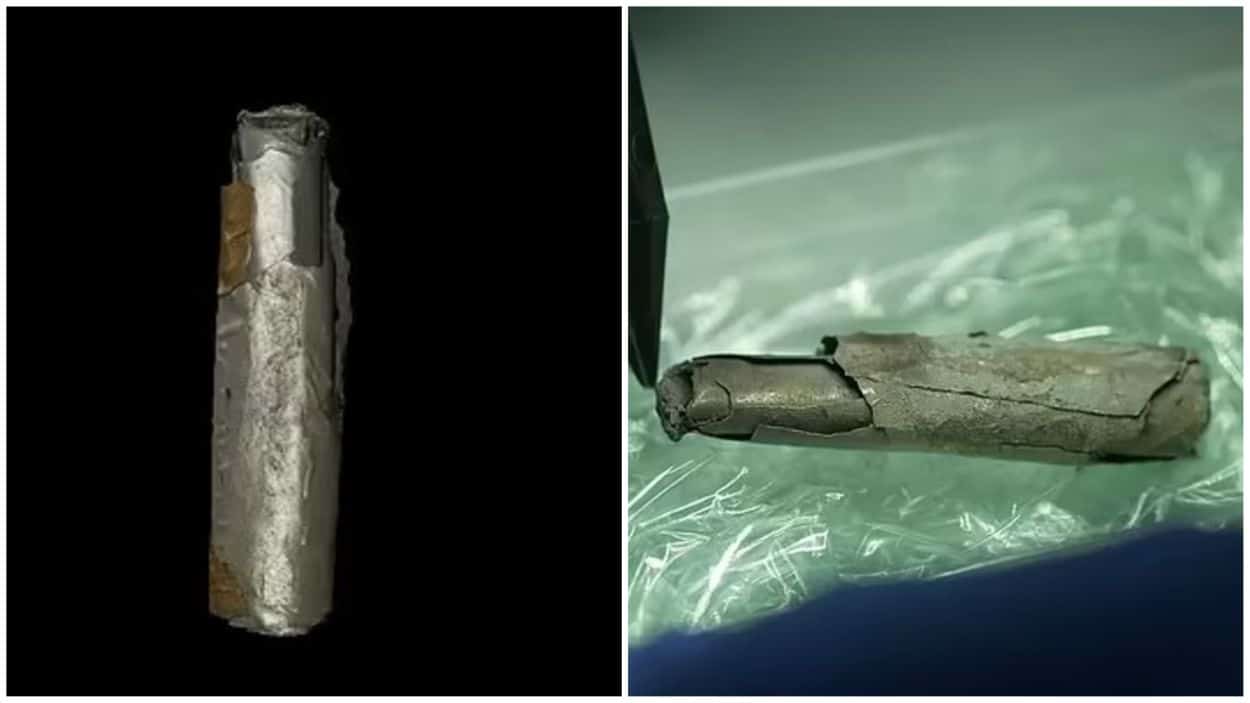In Germany, archaeologists have discovered a third-century silver amulet near Frankfurt that questions current beliefs about the early dissemination of Christianity in the Roman Empire and features uncommon Christian inscriptions, making it crucial for comprehending the history of early Christianity.
Found in a grave dated between AD 230 and 270, the amulet measures 3.5 centimetres in length and was discovered beneath the chin of a man’s remains, suggesting it was worn around the neck. Researchers from the Leibniz Center for Archaeology (LEIZA) and the Goethe University Institute of Archaeological Sciences used high-resolution CT scanning to reveal and decipher the 18-line Latin inscription.
Ancient Christian Amulet Archaeological Significance
This artefact is unique because it exclusively features Christian phrases in Latin, unlike other contemporary amulets that often include Greek or Hebrew. The inscriptions invoke Saint Titus and Jesus Christ, referencing Christian scripture such as Philippians, including phrases like “Holy, holy, holy!” that precede previously known records.
Frankfurt archaeologists discover silver amulet from 200 AD, the oldest physical evidence of Christianity north of the Alps.
Within the amulet is a Latin inscription that calls for the intercession of St. Titus and praises Christ as “the son of God” and the “Lord of the world.”… pic.twitter.com/Xy7hhyk5Ly
— AF Post (@AFpost) December 16, 2024The presence of the amulet in a western part of the Roman Empire, far from early Christian centres, illustrates the widespread adoption and adaptation of Christian practices. Dr Tine Rassalle, an independent biblical archaeologist, noted the rarity of such artefacts in this region, which typically appeared in the eastern Mediterranean.
Read: Ancient Human Migrations Discoveries in Tajikistan’s Zeravshan Valley
Historical Impact
The discovery not only highlights the reach of Christianity but also the risks associated with practising it under Roman persecution, suggesting that believers in remote areas like Frankfurt might have practised their faith in secret. The find parallels another similar amulet discovered in Bulgaria, indicating a broader spread of Christianity than previously understood.
Oldest Christian amulet ‘Frankfurt Silver Inscription’ discovered north of the Alps. https://t.co/gnF5bNmUGl
— Interesting Engineering (@IntEngineering) December 15, 2024Frankfurt Mayor Mike Josef remarked that the artefact redefines local and regional histories of Christianity, pushing back its historical timeline in the area by several decades. This amulet is a religious relic and a beacon of historical shifts during a tumultuous period in the Roman Empire.






